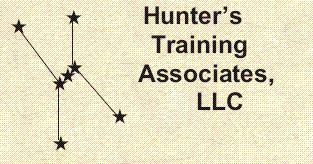
Using LE Services in z/OS - Topical Outline
Day One
Course Survey
Introduction to Language Environment
What Is Language Environment?
LE Services
Invoking LE Services
Tokens
LE Program Management
z/OS UNIX and POSIX
LE Program Management, Second Pass
LE and 64-bit Processes
Introduction to XPLINK
LE Message Services and Running LE Programs
Language Environment Message Handling Services
The CEEMOUT Service
Compiling and Linking LE Programs
Running LE Programs
Computer Exercise: A First Encounter With Language Environment
More on Message Handling Services
Message ID's
Loadable Text Files
Message Tag Files
The CEEBLDTX Exec
Creating a Message Module Table
The CEEMSG service
Computer Exercise: Using Message Files
Message Inserts and Run-Time Parameters
Message inserts
The CEECMI service
The CEEMGET service
Run-Time parameters
Sources for run-time parameters
The CEE3PRM service
The CEE3PR2 service
Computer Exercise: Message Inserts and Run-Time Parameters
Day Two
Tokens, Return Codes, and Termination
Token composition and decomposition: CEENCOD and CEEDCOD services
Data types for LE services parameters
Symbolic feedback codes
Return values from LE services
Enclave termination
Determining enclave return codes
The CEE3GRC and CEE3SRC services
User Area Fields
The CEE3USR service
Determining the Platform and Environment Information
The CEEGPID and CEE3INF services
Working with environment variables: the CEEENV service
Debugging Services
The CEE3DMP service
CEE3DMP - Sample outputs
The CEE3ABD service
The CEETEST service
Computer Exercise: Creating an LE Dump
Storage Management Services
Library and user storage, stack and heap storage
Run-time parameters that influence storage management
Library storage (stack and heap); user storage (stack and heap)
CEEGTST, CEEFRST, CEECZST, CEECRHP, CEEDSHP, CEE3RPH
Computer Exercise: Using Heap Storage
Condition Handling
Part 1 - Concepts
Condition Handling Concepts
Part 2 - Using Condition Handlers
Setting Up for Using Your Own Condition Handlers
Register Condition Handlers: CEEHDLR
Signaling Conditions: CEESGL
Part 3 - Writing Your Own Condition Handlers
Condition Handler Design
Possible actions in a condition handler
Handle cursor and Resume cursor
CEEMRCR, CEE3SRP, CEEMRCE, CEEGQDT, CEE3GRN, CEE3GRO, CEEITOK
Information Available To a Condition Handler
Condition Handling Tips
Computer Exercise: Condition Handlers
Day Three
ILC - Inter Language Communication
Introduction
Data Types
Methods of Passing and Receiving Data
Language pair considerations
Multiple Language Applications
Computer Exercise: Calling Subroutines in Multiple Languages
Assembler Considerations
Macros CEEENTRY, CEETERM, CEECAA, CEEDSA, CEEPPA
Using System Services
The CEELOAD macro and service
Macros CEEFETCH, CEERELES
AMODE Considerations
CEEFTCH macro
Preinitialization Services (CEEPIPI) - Optional
Library Routine Retention (LRR) - Optional
Date and Time Services
Date and time formats
LE date and time services: CEEDATE, CEEDATM, CEEDAYS, CEEDYWK,
CEEGMT, CEEGMTO, CEEISEC, CEELOCT, CEEQCEN, CEESCEN,
CEESECI, CEESECS, CEECBLDY, CEE3DLY, CEEDLYM
The Century Window
Date and time conflicts: COBOL, PL/I, C/370
Computer Exercise: Date and Time Services
LE International Support
Services, Supported countries, languages
LE Locale Services
Locale Concepts, Services
LE Math and Bit Manipulation Routines
LE: Miscellaneous Topics
CICS, IMS
Nested enclaves
XPLINK (C, C++ Users Only)
Traditional CALL linkages
XPLINK - Extra Performance Link
Sources of Information
M512 / 3 Days
These Materials © Copyright 2011 by Steven H. Comstock
Materials version: V4.x
Course description
Course Objectives
LE curriculum
Home page
This page last updated:1 August, 2014
Copyright © 2014 by Hunter's Training Associates, LLC